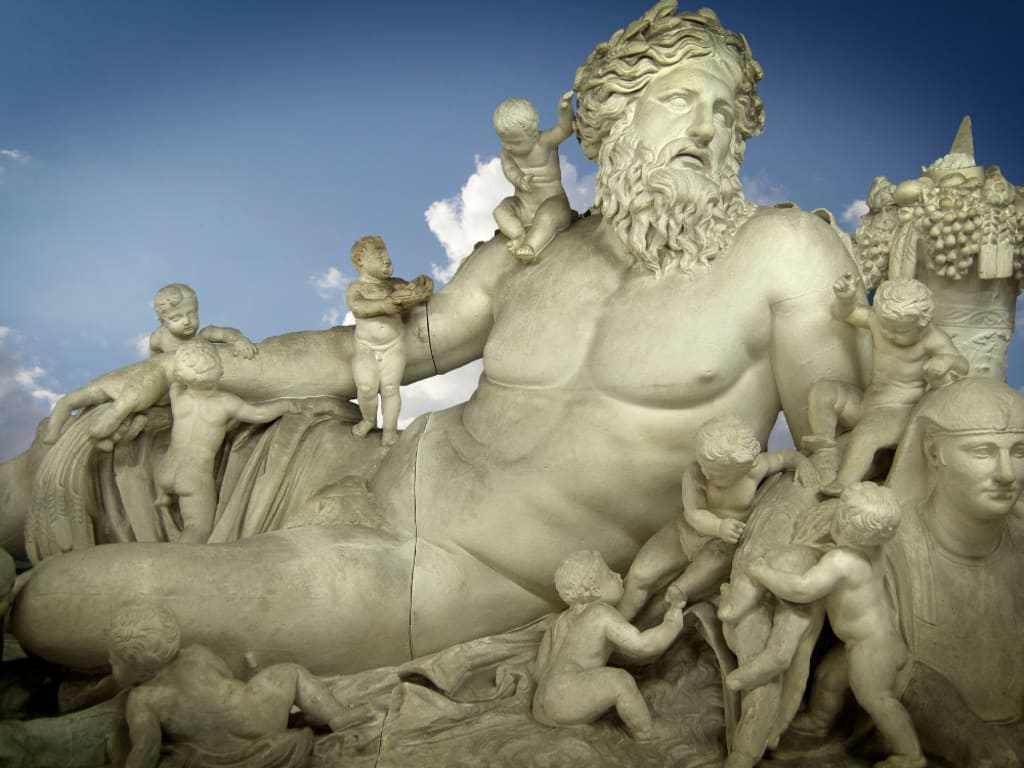10 Historical Myths That Many People Still Believe
Unraveling history's fabric: 10 debunked myths that challenge our understanding of the past.

History is a rich tapestry woven with stories, legends, and myths that often blur the line between fact and fiction. These tales, passed down through generations, can become ingrained in our collective consciousness, shaping our understanding of the past. However, not all historical narratives are based on accurate accounts. In this article, we delve into twenty common historical myths that persist despite evidence to the contrary. By debunking these misconceptions, we aim to shed light on the truth and encourage a more accurate understanding of our shared history.
Columbus Discovered America:
Contrary to popular belief, Christopher Columbus was not the first European to reach the Americas. Norse explorer Leif Erikson is believed to have reached North America around the year 1000, almost five centuries before Columbus set foot in the Bahamas. Despite this, Columbus is often credited with the discovery of America, perpetuating a historical myth that has endured for centuries.
Marie Antoinette's "Let Them Eat Cake":
The famous phrase attributed to Marie Antoinette, "Let them eat cake," is often cited as a symbol of her callousness and disconnect from the suffering of the French people. However, there is no concrete evidence that she ever uttered these words. The phrase existed in French literature before her time, and it is more likely a fictionalized portrayal created to vilify her during the French Revolution.
The Great Wall of China Is Visible from Space:
Contrary to popular belief, the Great Wall of China cannot be seen from space with the naked eye. The wall, while impressive in its length and historical significance, is not visible from low Earth orbit without the aid of telescopic lenses. This common myth has been perpetuated over time but is debunked by astronauts who have actually been to space.
Napoleon Bonaparte Was Short:
Napoleon Bonaparte is often depicted as a short man, earning him the nickname "Napoleon Complex." However, historical records indicate that Napoleon's height was around 5 feet 6 inches, which was average for a Frenchman of his time. The belief that he was short may have originated from a difference in measurement systems between France and Britain, where he was portrayed as shorter for political and propaganda purposes.
The Wild West Was Full of Gunfights:
The Wild West era of American history is often associated with gunfights and shootouts, perpetuated by Hollywood Westerns. In reality, gunfights were relatively rare occurrences, and many towns in the American West were peaceful communities focused on building civilization. The popularized image of the Wild West as a constant battleground does not align with historical records.
Cleopatra Was Egyptian:
Cleopatra, the famous queen of Egypt, is often portrayed as an Egyptian. However, she was of Greek Macedonian descent and the last active ruler of the Ptolemaic Kingdom of Egypt. Her ancestry can be traced back to Ptolemy I, a general of Alexander the Great. Cleopatra's Greek heritage is an important aspect of her identity and the historical context in which she ruled.
The Trojan Horse:
The story of the Trojan Horse, a giant wooden horse used by the Greeks to infiltrate the city of Troy, is a well-known tale from Greek mythology. However, there is no archaeological or historical evidence to support its occurrence as a real event. The story is likely a mythological invention, created to explain the fall of Troy.
George Washington and the Cherry Tree:
The story of George Washington chopping down a cherry tree and confessing his actions with the words, "I cannot tell a lie," is a popular anecdote from American folklore. However, there is no historical evidence to support the story's authenticity. The tale was most likely created to emphasize Washington's honesty and integrity as a revered figure in American history.
Vikings Wore Horned Helmets:
Despite the iconic depictions of Vikings wearing horned helmets, there is no historical evidence to support this image. The concept of horned helmets originated from artistic interpretations in the 19th century and has been perpetuated in popular culture. In reality, Viking helmets were likely simpler and designed for practicality and protection in battle.
The Salem Witch Trials:
The Salem Witch Trials of 1692 are infamous for the mass hysteria and execution of individuals accused of witchcraft. However, the widely held belief that witches were burned at the stake during the trials is inaccurate. The accused were actually hanged, with the exception of one man who was pressed to death with heavy stones. The myth of burning witches may stem from the association with European witch trials, where burning at the stake was a common method of execution.
These twenty historical myths, among many others, serve as reminders of the power of storytelling and the impact of cultural narratives on our understanding of history. By critically examining these myths and seeking the truth, we can deepen our knowledge and appreciation of the past. It is important to challenge long-held beliefs and misconceptions, allowing for a more accurate and nuanced understanding of our shared history. As we debunk these myths, we open the door to a more comprehensive understanding of the past and an appreciation for the complexities of human civilization.
Enjoyed the read? Show your support for my future pieces with a small contribution. Every gift counts!
About the Creator
Gokhan Polard
As an experienced ERC Referral Specialist, my primary dedication lies in assisting businesses in the journey towards financial success. https://ercsolutionshub.com/






Comments
There are no comments for this story
Be the first to respond and start the conversation.